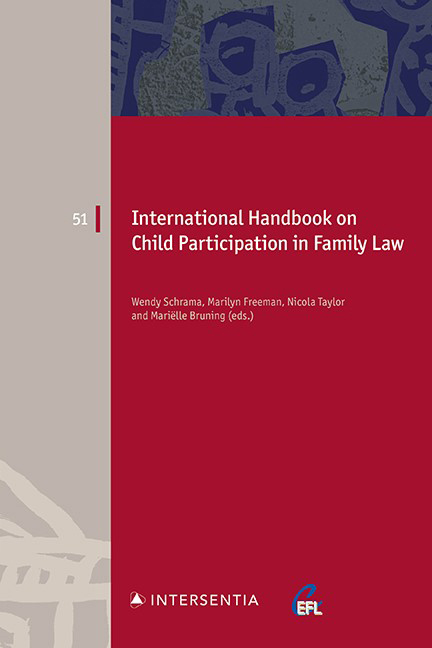Book contents
China
Published online by Cambridge University Press: 10 December 2021
Summary
INTRODUCTION
The National Bureau of Statistics of the People's Republic of China (NBS) publishes precise statistical data about the population of Chinese children and young people. For instance, as of 2019, the population aged 0–14 years was 234,920,000, comprising roughly 16.78% of the entire population of Mainland China in the same year. According to statistical data from the NBS, the past decade, from 2009 to 2018, has seen a distinct and continuous increase, from 1.85% to 3.20%, in the crude divorce rate, from which a corresponding increase in the number of minor children (younger than 18 years old) involved in these family conflicts may be predicted. The China Justice Big Data Service Platform also released nationwide statistics revealing that 96% of divorce litigation cases from 2014 to 2016 were child custody disputes. In addition to marriage dissolution through a judicial process, under which child-related issues would be settled, a minor child can initiate litigation pertaining to child issues as the subject of the litigation, represented by his/her guardian. As a matter of procedure, as part of the in-depth reform of the mode of hearing family disputes, children can participate both in and out of court verbally or in writing, and, where necessary, children's opinions and views can be represented by an independent legal proxy, as explained below.
STATUTORY PROVISIONS
In judicial practice in China, children involved in family disputes keep their own independent personality rather than being accessories of the parents or the family. Since China became a member of the United Nations Convention on the Rights of the Child (UNCRC) in 1992, the principle of the child's best interests, which is the overarching principle in family dispute resolutions set out in Article 3(1) UNCRC, has been adopted. This principle states that: ‘In all actions concerning children, whether undertaken by public or private social welfare situations, courts of law, administrative authorities or legislative bodies, the best interests of the child shall be a primary consideration.’ The overarching principle is also stipulated by many domestic laws of the People's Republic of China (PRC), such as Chapter Five of the Civil Code on Marriage and Family, the Law on the Protection of Minors, the Civil Procedure Law, etc. However, in various circumstances, the application standards vary.
- Type
- Chapter
- Information
- International Handbook on Child Participation in Family Law , pp. 133 - 142Publisher: IntersentiaPrint publication year: 2021



